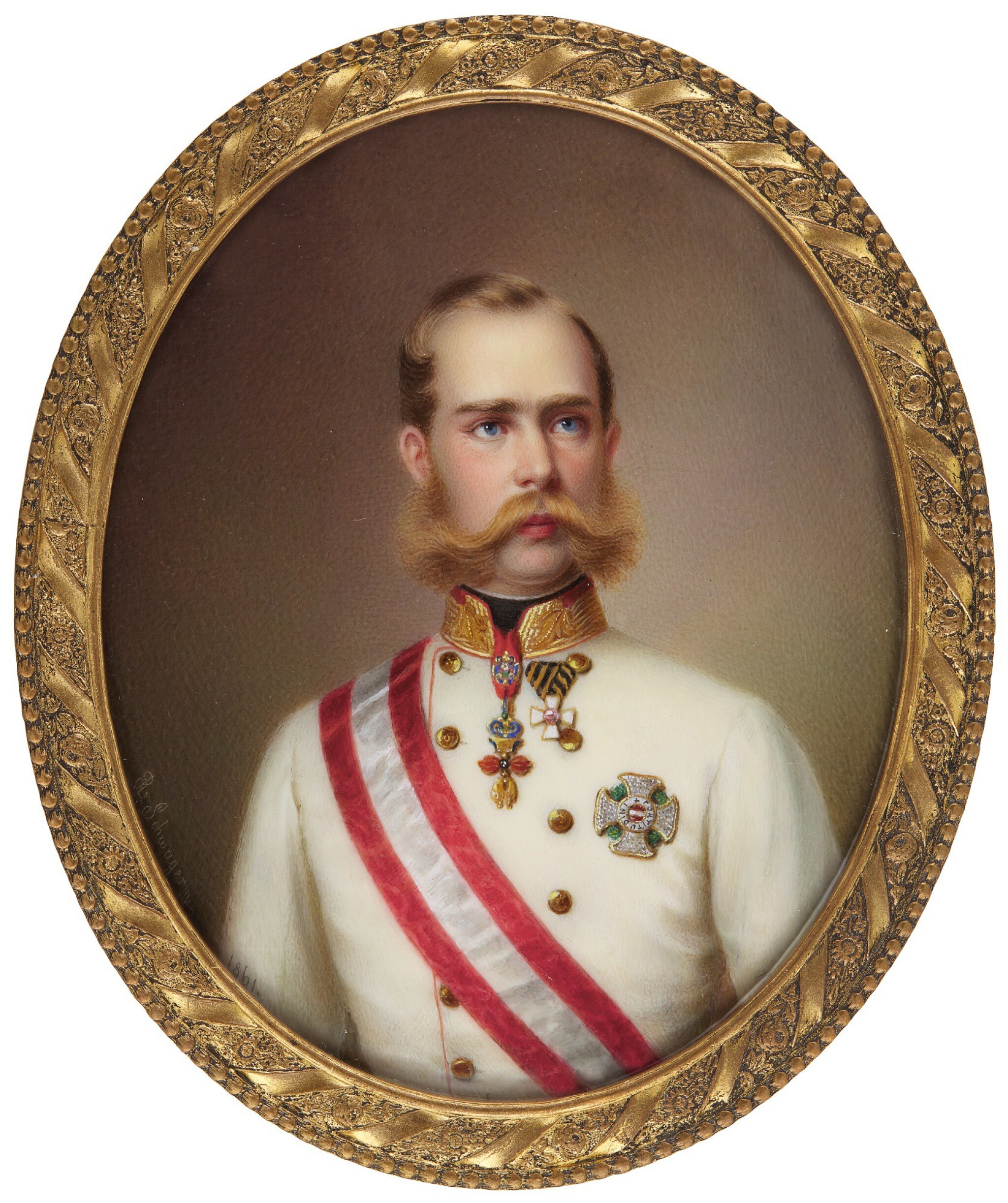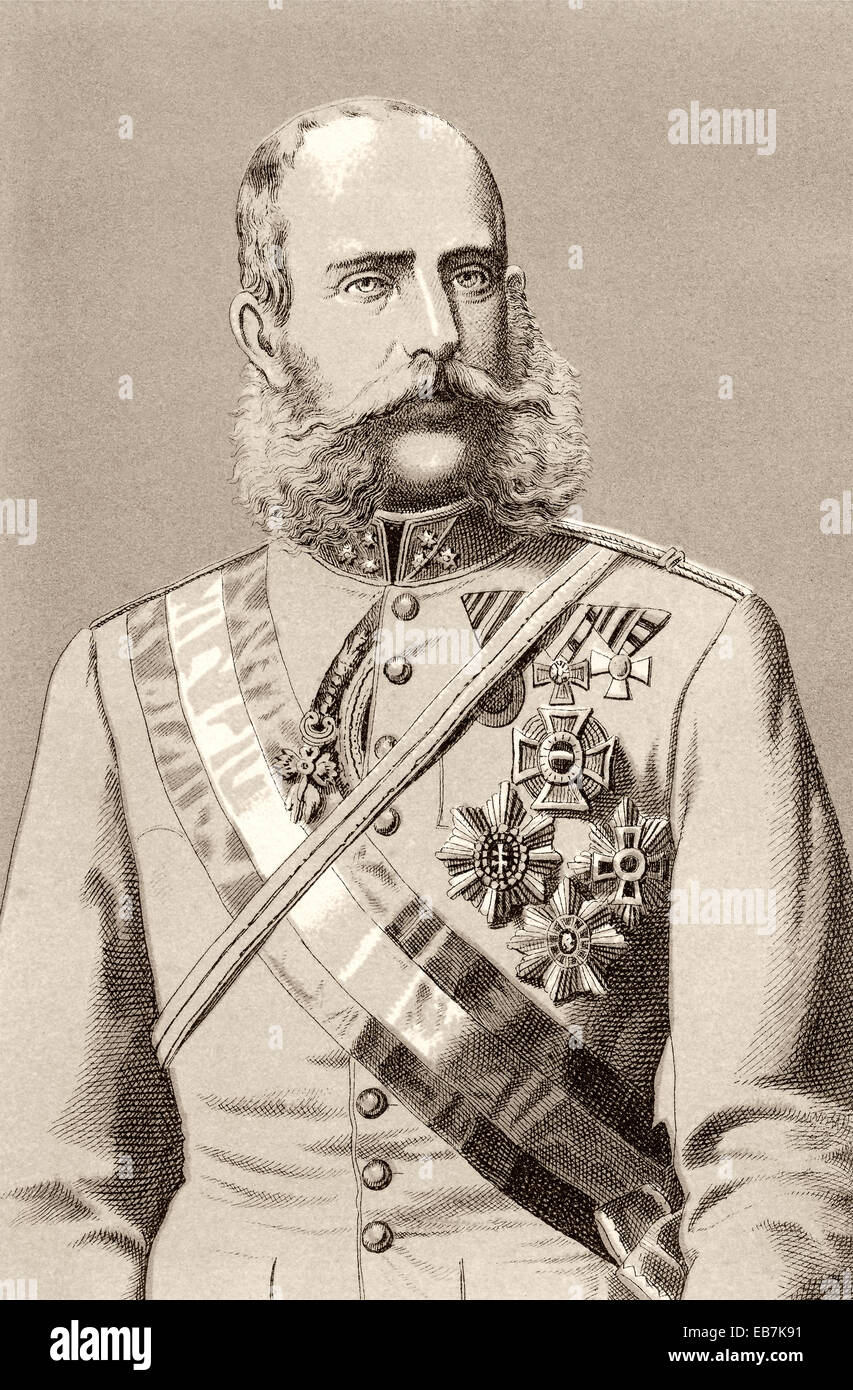

Gyulay von Maros-Németh und Nadaska, Franz (VI.) Graf, in Constant von Wurzbach, Biographisches Lexikon des Kaiserthums Oesterreich, 6. One of his great granddaughters, countess Ilona Edelsheim-Gyulai, married the airforce officer István Horthy (1904-1942), son of Miklós Horthy, regent of Hungary. His adopted son, his wife's nephew, the Baron Leopold Wilhelm von Edelsheim (1826-1893), major general, took on his name, becoming baron and later count Lipót Vilmos (Leopold Wilhelm) Edelsheim-Gyulai, founder of the Edelsheim-Gyulai family. He and his regiment were one of the last Austrian fortresses to resist the process of Italian unification (Mantua was not to join the kingdom of Italy until 1866). Gyulay later requested (and received) from the emperor command of the regiment bearing his name.
Franz joseph i series#
As a result of a serious miscalculation (he thought that the Franco-Piedmontese attack would come from the south via Piacenza), Ferenc Gyulay was to suffer a series of defeats (Montebello, Palestro, and finally Magenta, on 4 June, 1859) and finally to be relieved of his position and replaced by the young emperor, Franz Joseph himself, assisted by Felzugmeister Hess. Once the French and Piedmontese armies had joined up, his task was twice as hard. However a mixture of disorganisation and orders from Vienna to wait behind the river Mincio in order to receive the allied attack, caused a crucial two-week delay in positioning. His actions at the beginning of the campaign meant that the Austrian army was well placed to meet and destroy the Piedmontese/Sardinian and French armies separately.


In 1859, during the opening of the war, Emperor Franz Joseph appointed Gyulay governor (sort of Viceroy) of the kingdom of Lombardy and Venetia, as a replacement for the liberal Prince Imperial Ferdinand Maximilian ( Maximilian I, emperor of Mexico). In 1857, he was appointed commander in chief of Austrian forces in northern Italy. In 1850, he was promoted to Feldzugmeister of Vth Army Corps and on 28 February, he succeeded Joseph Radetzky as civilian and military governor of Lombardy. In July however, of his own volition, he stepped down from his ministerial post. In recompense for his excellent service, Gyulay was promoted to War Minister (1 June, 1849), in which capacity he directed the combat at Raab (Győr) on 28 June, 1849 and the preparations for the siege of Komárom. He also protected the Seebezirk from attack by the Sardinian and Neapolitan navies, until Austrian victory under Radeztsky at Custoza (25 July, 1848) relieved the pressure.

When in 1848 the Hungarian revolution broke, as military governor he took command of the Austrian fleet, preventing its being seized by Hungarian and Italian revolutionaries. In 1846 he was appointed governor of Trieste and military commander of the Austrian region called Seebezirk. He became lieutenant in 1820, lieutenant-colonel in 1829, colonel in 1830 and finally major general 1839. It is thought that his military career was somewhat accelerated by his family name. Ferencz József Gyulay entered Austrian military service in 1815. Ferencz József Gyulay (also spelled Gyulai) was Graf (Count) von Maros-Németh and Nádaska, only son of the Feldmarschallleutnant and Transylvanian noble, Ignácz Gyulay.


 0 kommentar(er)
0 kommentar(er)
